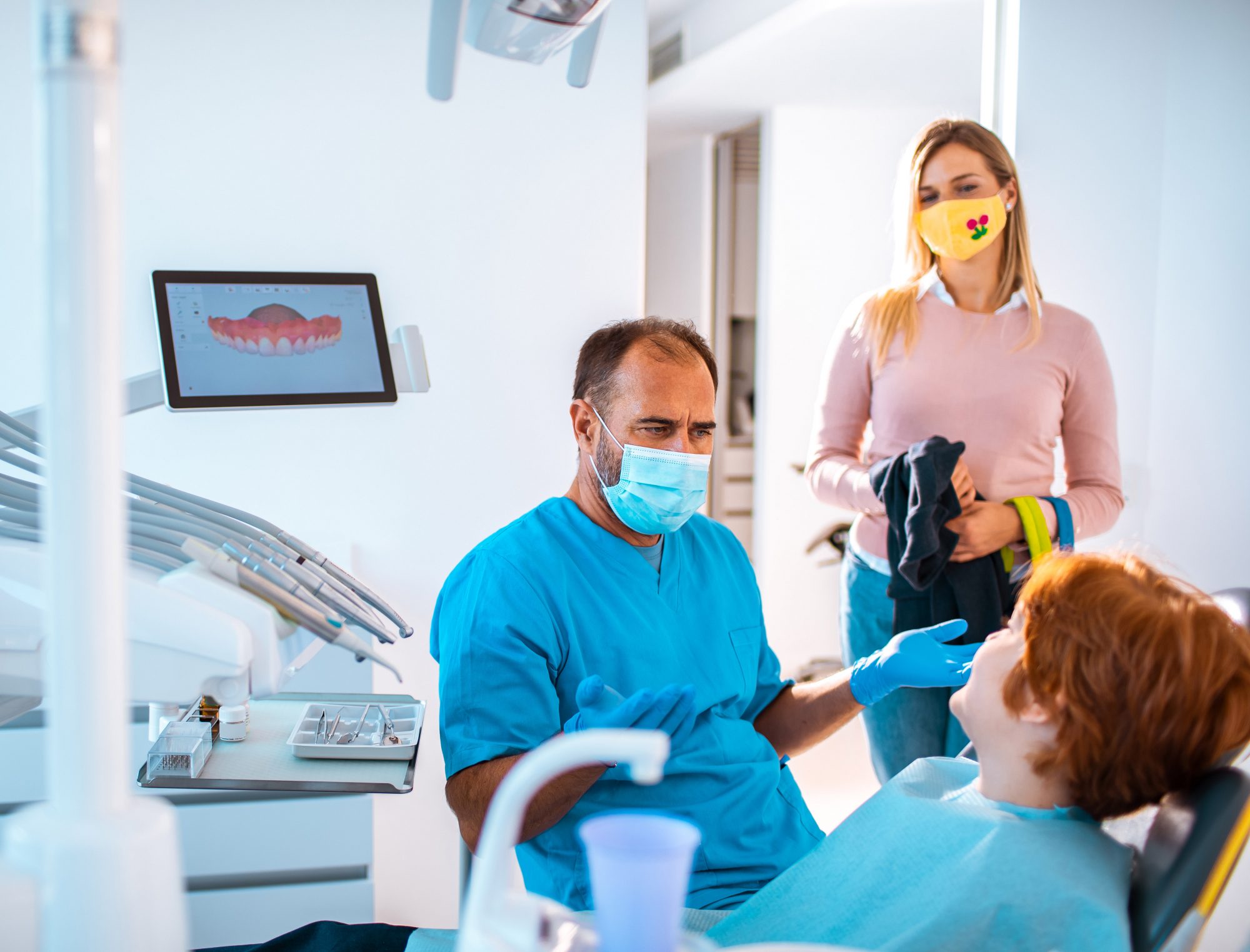Keeping up to date with routine doctor's appointments during the pandemic has been close to impossible for many families. One checkup in particular has slipped under the radar: dental care.
Forty percent of parents haven't received preventative dental care for their kids since the start of the pandemic, according to a new C.S. Mott Children's Hospital National Poll on Children's Health. The poll, released in February, sampled more than 1,800 parents with kids ages 3-18.
That's not a good thing. "Regular preventive dental care helps keep children's teeth healthy and allows providers to address any tooth decay or dental problems before they become more serious," Mott Poll co-director Sarah Clark, M.P.H., said in a statement.
The most common reason for skipping dentist appointments was fear of getting exposed to COVID-19. Of course, it's totally normal for parents to be concerned about safety. Sandra Chung, D.D.S., a pediatric dentist at ProHealth, advises parents to call their dentist office and ask questions about COVID-19 prevention protocols.
The good news is dentist offices—like other medical facilities—are taking proper precautions to prevent the spread. A November 2020 report found COVID-19 infection rates were low among dentists. "In our office, we are following the CDC recommendation for infection prevention and control," says Dr. Chung. In part that includes requiring all patients to wear masks, filling out COVID-19 screening questionnaires before appointments, and checking temperatures at the door. The office also has hand sanitizers for public use, encourages physical distancing, and limits the number of people. As for staff, they wear N95 masks under surgical masks along with a face shield. Instruments are sterilized and rooms are disinfected.
But concern about the virus wasn't the only reason parents noted—23 percent said their kids weren't due for a visit, while more than a fourth said their kid didn't have any issues with their teeth. The latter shouldn't be a deterrent.

"Even if your child's teeth may appear healthy and they are not complaining of pain, they may have small cavities forming in between their teeth that can only be detected from an x-ray image," says Dr. Chung. "If left untreated, the decay can spread to adjacent teeth and grow deeper into the tooth. This can cause significant pain and lead to an infection." Although tooth decay—aka cavities—is one of the most common chronic diseases, it is preventable. And 10 percent of young kids have untreated tooth decay, according to the CDC.
Dr. Chung adds that since reopening in the summer of 2020, she noticed an increase in tooth decay in her patients. "This may be contributed to the fact that children have fallen out of their usual routine. They are home more often, not brushing as much, and snacking much more frequently," she says.
Keep in mind, the American Academy of Pediatric Dentistry (AAPD) recommends an initial dentist visit take place after a baby's first tooth appears or by 1 years old. A check-up every six months is recommended thereafter.
It's important to note that not all parents have the same access to dental care. For 23 percent of parents in the poll, their kid's dentist office was closed or was only accepting patients with emergencies. Others say there were long wait times for an appointment. One in four parents of kids without dental insurance pointed to cost. And kids with Medicaid dental coverage were three times for more likely not to get an appointment compared to those with private dental insurance.
"Because many dentists do not accept Medicaid payment, it often is difficult for parents to get dental care for their Medicaid-covered child outside the pandemic. Some Medicaid-enrolled children receive preventive dental services through school or public dental clinics, but those services have decreased during the pandemic," the report reads.
On a positive note, the report found kids (especially ones with Medicaid) have been improving their oral habits. They have been brushing and flossing more, using fluoride rinse, and consuming less sugary drinks.





